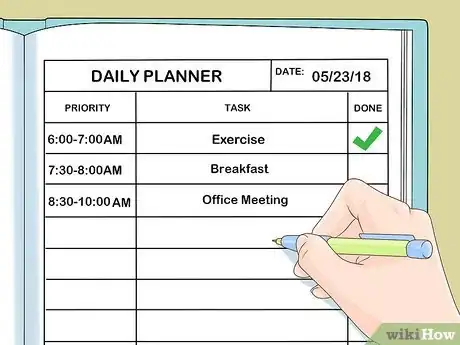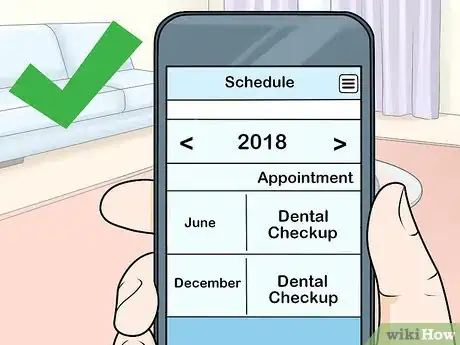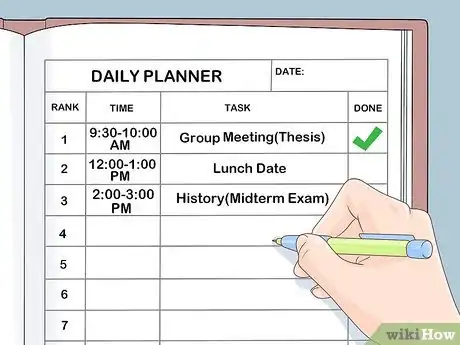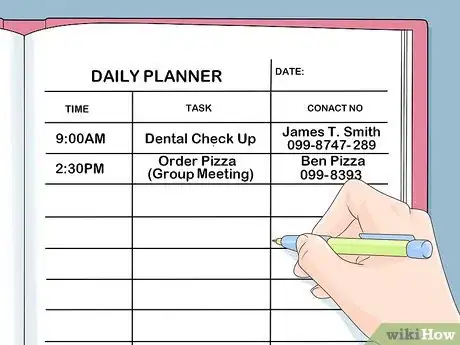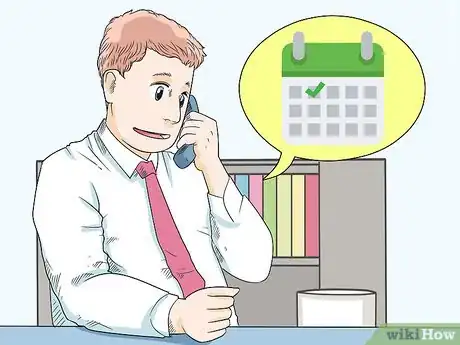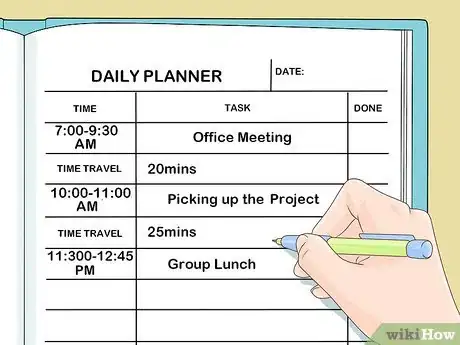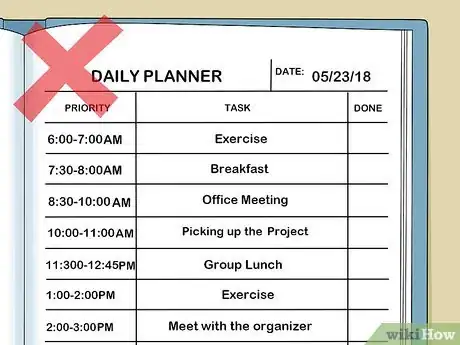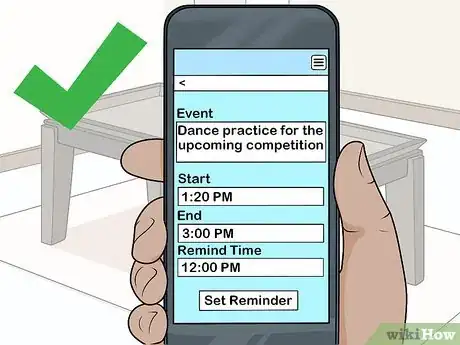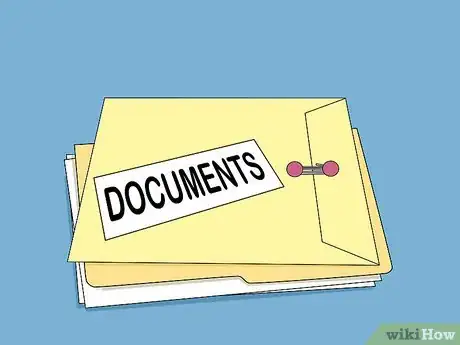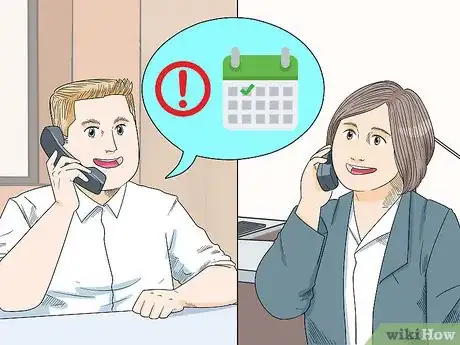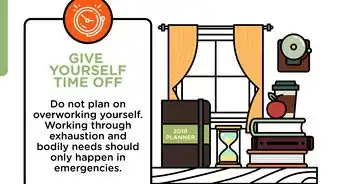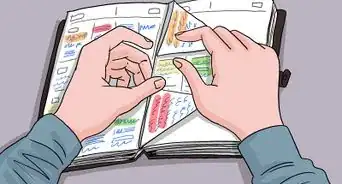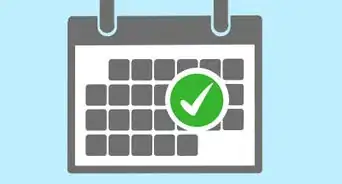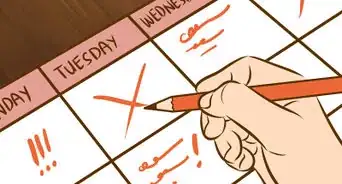This article was co-authored by Lynda Jean and by wikiHow staff writer, Amber Crain. Lynda Jean is an Image Consultant and the Owner of Lynda Jean Image Consulting. With over 15 years of experience, Lynda specializes in color and body/style analysis, wardrobe audits, personal shopping, social and professional etiquette, and personal and business branding. She works with clients to enhance their image, self-esteem, behavior, and communication to facilitate their social and career goals. Lynda holds Bachelor degrees in Sociology and Social Work, a Master’s degree in Clinical Social Work, and a Certified Image Consultant (CIC) certification. She studied Image Consulting at the International Image Institute and the International Academy of Fashion and Technology in Toronto, Canada. Lynda has taught Image Consulting courses at George Brown College in Toronto, Canada. She is the co-author of the book, “Business Success With Ease,” where she shares her knowledge about, ‘The Power of Professional Etiquette.’
There are 7 references cited in this article, which can be found at the bottom of the page.
This article has been viewed 88,450 times.
Making and keeping appointments is a part of almost everyone’s life. If you get organized ahead of time, you can set appointments for yourself quickly and easily. You’ll also be able to eliminate the possibility of scheduling conflicts and efficiently manage your time every day.
Steps
Getting Organized For Making Appointments
-
1Use a day planner or digital calendar.[1] These will help you more precisely organize your time and keep up with your appointments. Enter appointments into your calendar as you make them. Then plan the rest of your days around those obligations. Try to plan your days the night before or first thing in the morning, before your day starts. Don’t start your day until you’ve planned it.
- If you have packed schedule, plan your day down to the hour. You can even allot time to tasks like breakfast and exercise, ensuring you get the most out of every day.
- Refer to your daily plan throughout the day to keep yourself on track.[2]
- If you go digital, give Google Calendar a try. You can sync it with your mobile phone or tablet so that you can check your schedule at any time, even when you’re on the go.
-
2Have a filing system for important documents. Use a filing cabinet or organizer to keep track of documents, medical records, test results, and any other material that you may need for future appointments. This will prevent you from scrambling at the last minute, trying to find what you need, and being late to your appointments.[3]
- Alphabetize your files so that you can put your hands on whatever you need at any given time.
Advertisement -
3Be aware of recurring appointments and deadlines. If you see your dentist every 6 months, set a reminder for yourself to make that appointment well ahead of time. You can also set reminders for appointments that are time sensitive, so that you don’t miss a deadline or get caught off guard.
-
4Rank your appointments by importance and proximity. When you’re preparing to make appointments, get your most important ones out of the way first.[4] If you have multiple appointments to make, group together any that have locations near to one another and set them back to back on the same day.
- This will save you an extra trip and keep your travel expenses down.
-
5Keep a phone list handy. These days, most people rely solely on their mobile phones to store important phone numbers. In general, that’s fine, but try to keep a written list of appointment phone numbers, just in case you have a phone malfunction and can’t access your contacts.
- Your digital calendar will likely store your contact numbers for you, but you might want to keep a written list anyway, on the off chance that you can’t access that, either.
Making Your Appointments
-
1Call to make the appointment. If you have a full day to plan, make your first appointment as early as possible and schedule the others consecutively.[5] Before you get off the phone with the individual who’s setting your appointment, ask for an approximate time length the appointment will last and if you should expect any wait time prior to your appointment.
- Based on that information, you can schedule another appointment on the same day, after that one.
- Ask the person setting your appointment to confirm the day and time you’ve just settled on.
- After they repeat back the correct information, enter the appointment into your calendar or planner.
-
2Calculate travel time for each appointment. As you’re setting appointments and planning out your day, don’t forget to calculate how long it will take you to get from point A to point B. Keep travel times in mind when you’re making other appointments and scheduling other tasks for that same day.[6]
- Without factoring in travel time, you’ll end up running late pretty quickly.
- Don’t forget to include a time buffer between appointments, too.[7]
- Work out the travel time and then give yourself a small, additional cushion of time (5 to 15 minutes) for any unforeseen events or stops.
-
3Avoid over-scheduling yourself. Be realistic when you’re making appointments and scheduling your day. Don’t create an agenda for a day that’s impossible to follow accurately. Give yourself plenty of time between appointments and obligations so that your days aren’t stressful and so that you can stay on task.
- Don’t pressure yourself to fit everything into a single day.
- Prioritize and if there are a few things you just can’t get to, schedule them on another day.[8]
-
4Schedule time off from work or school in advance. Once you’ve set an appointment, notify your work or school about it well in advance to ensure you can be out on that day and time. Remind them the day before your appointment that it will be happening the next day.
- Confirm the time with them and give them the best time estimate you can for how long you’ll be out.
Getting To Your Appointments
-
1Set reminders for your appointments. Create an alarm on your cell phone to remind you anywhere from 30 minutes to 2 hours before your appointment is set to begin. Since most digital calendars have a reminder function, set a reminder the day before your appointment, as well, to cover your bases.[9]
- If you’ve synced your mobile phone or tablet with your calendar, you will receive reminders on all devices.
-
2Bring along any documents or materials you’ll need. Make sure you’re prepared for your appointment with the right materials, tools or paperwork necessary. In some cases, forgetting those items may delay or derail your appointment completely, and you’ll be forced to reschedule.
- Add a note to the reminder you set for the appointment that mentions any material you need to bring along with you.
-
3Plan to arrive early. Leave for your appointment at least 15 minutes early.[10] If you plan to arrive at an appointment exactly at the appointment time, it’s highly possible that you’ll end up being late. Traffic and other unforeseen delays are common – you never know what you might encounter, so leave early to be sure you’re on time.[11]
- Get an early start on the day by setting your alarm a little earlier than you normally would, just in case.
- Make sure you give yourself enough time to complete your usual morning ritual without having to rush yourself or stress out.
- Establishments would much prefer you to be early rather than late, and most places appreciate when you arrive a little early anyway.
-
4Notify your next appointment if you’re held up. If you have appointments scheduled back to back and you get delayed at the first one, step aside and make a call to your next appointment to notify them. Confirm with them that you can still keep your appointment if you’re a few minutes late.[12]
- Ask to reschedule for the same day if being late isn’t an option.
- If there are no appointments left for that day, apologize and reschedule your appointment for another day.
-
5Call and cancel as far in advance as possible. If you can’t make it to an appointment, call them to cancel as soon as you possibly can. If possible, reschedule your appointment while you have them on the phone, since it might slip your mind later if you put it off.
- Occasionally, places will penalize you if you don’t notify them 24 hours in advance that you can’t make it to your appointment.[13]
- When you are making your original phone call to set up the appointment, inquire about their cancellation policies so that you won’t be caught off-guard.
Community Q&A
-
QuestionHow would I ask clients to promise to contact me if they cannot keep their appointments?
 Tom De BackerTop AnswererThis should be normal, but sadly, it isn't. Draft a general policy on how you will handle this, and communicate this to all your clients. For example: "We understand you sometimes can't keep your appointments. Please let us know 24 hours in advance. If you fail to let us know twice, we will charge you our normal fee."
Tom De BackerTop AnswererThis should be normal, but sadly, it isn't. Draft a general policy on how you will handle this, and communicate this to all your clients. For example: "We understand you sometimes can't keep your appointments. Please let us know 24 hours in advance. If you fail to let us know twice, we will charge you our normal fee." -
QuestionMy license was suspended for medical reasons, but my doctor has since given me the go-ahead to drive again. How do I get my license back?
 PattiCommunity AnswerIn most situations, if you take a letter from your doctor to the Department of Motor Vehicles office, or wherever you normally go to get or renew a driver's license, this should suffice. Your letter will need to state the condition that you had, the date that your condition was resolved, and it should state specifically that the doctor clears you for driving. This would be for a regular driver's license. If you held a license for driving a big rig, bus, or taxi, there may be medical examinations that you have to complete to satisfy the DMV.
PattiCommunity AnswerIn most situations, if you take a letter from your doctor to the Department of Motor Vehicles office, or wherever you normally go to get or renew a driver's license, this should suffice. Your letter will need to state the condition that you had, the date that your condition was resolved, and it should state specifically that the doctor clears you for driving. This would be for a regular driver's license. If you held a license for driving a big rig, bus, or taxi, there may be medical examinations that you have to complete to satisfy the DMV. -
QuestionWho do I call to make an appointment?
 Community AnswerThat depends entirely on what you want to make an appointment for. However, if you cannot find a direct number to make an appointment (say, at your doctor's office), you can usually call any main line number and they will be able to direct you to the scheduling department.
Community AnswerThat depends entirely on what you want to make an appointment for. However, if you cannot find a direct number to make an appointment (say, at your doctor's office), you can usually call any main line number and they will be able to direct you to the scheduling department.
References
- ↑ http://www.jobs.ac.uk/careers-advice/managing-your-career/1254/tips-for-time-management-and-balancing-a-busy-workload
- ↑ https://hbr.org/2009/07/an-18minute-plan-for-managing
- ↑ http://www.jobs.ac.uk/careers-advice/managing-your-career/1254/tips-for-time-management-and-balancing-a-busy-workload
- ↑ http://www.creativitypost.com/create/work_smarter_not_harder_21_time_management_tips_to_hack_productivity
- ↑ http://www.huffingtonpost.com/elizabeth-grace-saunders/time-block-to-stay-focuse_b_8254698.html
- ↑ http://ops.fhwa.dot.gov/publications/tt_reliability/TTR_Report.htm
- ↑ http://www.creativitypost.com/create/work_smarter_not_harder_21_time_management_tips_to_hack_productivity
- ↑ http://www.jobs.ac.uk/careers-advice/managing-your-career/1254/tips-for-time-management-and-balancing-a-busy-workload
- ↑ http://personalexcellence.co/blog/on-time/
About This Article
If you have a full day of appointments to make, schedule your first one as early as possible and get the rest done in consecutive order. When you speak with the person you’re scheduling, confirm the day and time with them before writing it in your calendar or planner. While you still have them on the phone, make sure to ask for an approximate length of time that the appointment will last. Based on what they tell you, you can schedule another appointment after that one. As you write your appointments in your planner, calculate the time it will take to travel to each meeting and take that into account as you schedule your day. Most importantly, avoid over-scheduling yourself or you might get so stressed out that you can’t focus during your appointments. For more help, including how to make sure you get to your appointments on time, scroll down!
